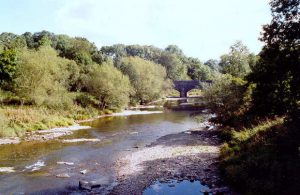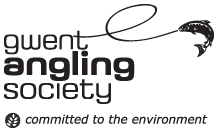
The Real Threat to Your Fishing
If you are an angler who fishes in Wales, whether occasionally or it is your main pastime, I have to tell you it is all under threat.
This is not an idle threat but reality.
Many groups, clubs and angling organisations have fought hard to preserve your right to fish in tranquillity and relative peace. During the past 10 years, there have been three previous consultations where other river users have sought unfettered and uncontrolled access to our rivers and wild waterways.
The majority of anglers do not object to other users of our rivers and waterways, in fact, financial contributions would help to protect these environments. What anglers, clubs and landowners wish for is controlled agreed access through Voluntary Access Agreements (VAA’s) rather than changes in the access laws.
The recommendations of these previous Welsh Government consultations proposed that other river users, such as canoeists, should negotiate access with landowners and angling clubs through VAA’s. Splash funding or government funding (your taxpayer’s money), was committed to this by the Welsh Government. The amounts paid out can be viewed in the attachments and to whom they were paid. This information was collated following a freedom of information requests from WG and makes interesting reading.
Throughout these times, clubs and fishing organisations have tried to come to mutually beneficial access agreements for access to the river. Our own club has a VAA with Coleg Gwent.
Non-angling and canoeing organisations have resolved to ensure that their members and affiliated clubs do not enter into a negotiated agreement with angling clubs and landowners for controlled access. Their one goal is unfettered, free access without any control whatsoever.
The consequence of such uncontrolled access will likely create an environment that will prevent anglers enjoying their sport in peace and will have a likely devastating effect on the natural environment of the river and the land over which it passes, as well as have a serious negative effect on the contribution that inland angling makes to the Welsh economy.
I would ask you, no, in fact, I implore you, to stand up for your sport and answer the consultation document which suggests a change to the Countryside Rights of Way (CROW)Act 2000 giving free and open access to land and waters within Wales without consideration to it consequences.
This will be your only chance to have your say!!!!! Without it, be assured it will be brought into statute and your rights and entitlements will be lost forever.
If the usual apathy of anglers is maintained then we will lose the rights we have and have worked to secure for generations, and for which we pay.
To help you participate in and respond to the consultation, we have gathered together various relevant documents with background facts and evidence. In particular, I refer you to the guidance given by the Sustainable Access Campaign Cymru (SACC) in the document entitled “Dear SACC supporter” which provides bullet-point answers to each of the key questions in the consultation, access to the consultation documents and information on who to contact in the Welsh Government. Also please refer to Gwent Angling Society’s reply entitled “GAS reply”.
Dear SACC Supporter,
Welsh Assembly Government has recently launched a consultation entitled Taking Forward Wales’ Sustainable Management of Natural Resources, which includes far-reaching implications on those who live, work and use our countryside including a proposal to amend or revoke the Countryside Rights of Way Act 2000, to provide access to canoes, rafts or even paddle boards on any non-tidal water, rivers or inland waters anywhere, overriding restrictions under existing law.
Our organisations will be responding in our own right, but we believe that it is very important that as many individuals as possible respond to this consultation to try to maintain the status quo. It is particularly important that rural businesses such as farmers, tourism businesses, tackle shops and angling guides respond to highlight the importance of angling for employment and economic activity and how this might be damaged as a result of unfettered canoeing and other watersports. Individual responses will have much more influence than standard templates, but we have provided some points below to help you respond.
The deadline for consultation responses is 13th September 2017. Please also send a copy of your response to your regional and constituency Assembly Members. To find out who that is, see the Welsh Parliament – Your Members of the Senedd.
It might be worth making the following points as well (if possible in your own words) in response to the questions in Chapter 4 under the following headings:
Question 15
- canoeists pay no licence fee or permits and yet they demand free access
- emphasise that amending or revoking the law will not provide consistency, but will unjustly penalise the angling community which has no right to go and fish anywhere without paying
- many fishing clubs have taken out loans to buy fishing rights and the value of these rights will be significantly eroded by proposals to allow access which could drive them to insolvency
- the fact that anglers pay a rod licence ranging from £30 to £80 a year and this pays for fisheries management. Anglers contributed over £1m to NRW from the sale of over 53,000 licences in 2016/17
- anglers pay subscriptions to clubs, and for day tickets, to get permission to fish short stretches of river
- how much your club pays for its angling, either as an owner or a lessee and if your club sells day tickets, how many it sells each year
- many anglers also donate funds and their voluntary time to support River Trusts who use this money to generate substantial additional external funding to restore rivers
- changes in the law should not cause unreasonable interference with the rights of landowners and lessees to enjoy their property
- highlight the importance of angling for employment and economic activity and how this might be damaged as a result of unfettered canoeing
- evidence of the economic benefits of angling: how much you spend as an angler, or if you run a business how much it turns over and how many people it employs
- that the Welsh Government’s 2008 Wales Fisheries Strategy stated that “for recreational freshwater anglers, the value of tourism angling to Wales in 2008 was estimated to be well over £100m” and that “the results of the economic success of Fishing Wales have shown that angling marketing work generated £80 for every £1 spent on marketing – more than for any other tourism-related activities”. Given inflation since 2008, and the fact that angling participation is still very high in Wales and England, this value is likely to have increased, and angling on inland waters will still now contribute hugely to the Welsh economy.
Question 16
- Our community has tried very hard to reach agreements (and renew existing agreements) which allow some canoeing, but the resistance of the canoeing governing bodies to sign up to agreements with reasonable restrictions, coupled with their erroneous claims that the law is not clear, have frustrated these attempts
That NRW could make a beneficial contribution, but SACC organisations believe that sustainable access to land and water must:
- be agreed locally between the relevant parties to reflect the particular local conditions and pressures rather than being generally imposed by national regulations;
- be managed to avoid conflict between users
- respect the rights of people to continue to enjoy existing legitimate activities without disturbance
- not cause unreasonable interference with the rights of landowners and lessees to enjoy their property
- not damage the natural environment or the ecosystem services it provides by causing unreasonable damage to wildlife and habitats and unnecessarily heighten the risk of the introduction of alien aquatic species, a risk that increased canoe traffic will pose
- salmon, sewin and trout stocks are in decline across most of Wales. Our sector wants to see action to address the widespread and endemic problems of agricultural pollution, habitat damage, over-abstraction and unsustainable predation rather than having our fishing damaged by yet another threat
Question 17
- an open-access model similar to Scotland, where it has caused significant problems to a number of fisheries, and where there is much more space, is inappropriate to Wales
- Wales and its rivers are much smaller, and much nearer large population centres, than Scotland
- canoeing on small rivers has a very big impact on fishing and even one or two canoes can make fishing pointless for hours; report your personal experiences of this if possible
Question 40
- make any further comments you may wish
If you live outside Wales, please write to both the relevant constituency and regional Assembly Members for the area where you do most of your fishing, and don’t forget to highlight how much you spend when you visit.
Please send your response to them by 13th September and encourage every other angler who cares about the future of fish and fishing to do the same.
Kind regards,
Angling Cymru,
Angling Trust & Fish Legal,
Countryside Alliance,
Country Land & Business Association,
Welsh Salmon and Trout Angling Association


